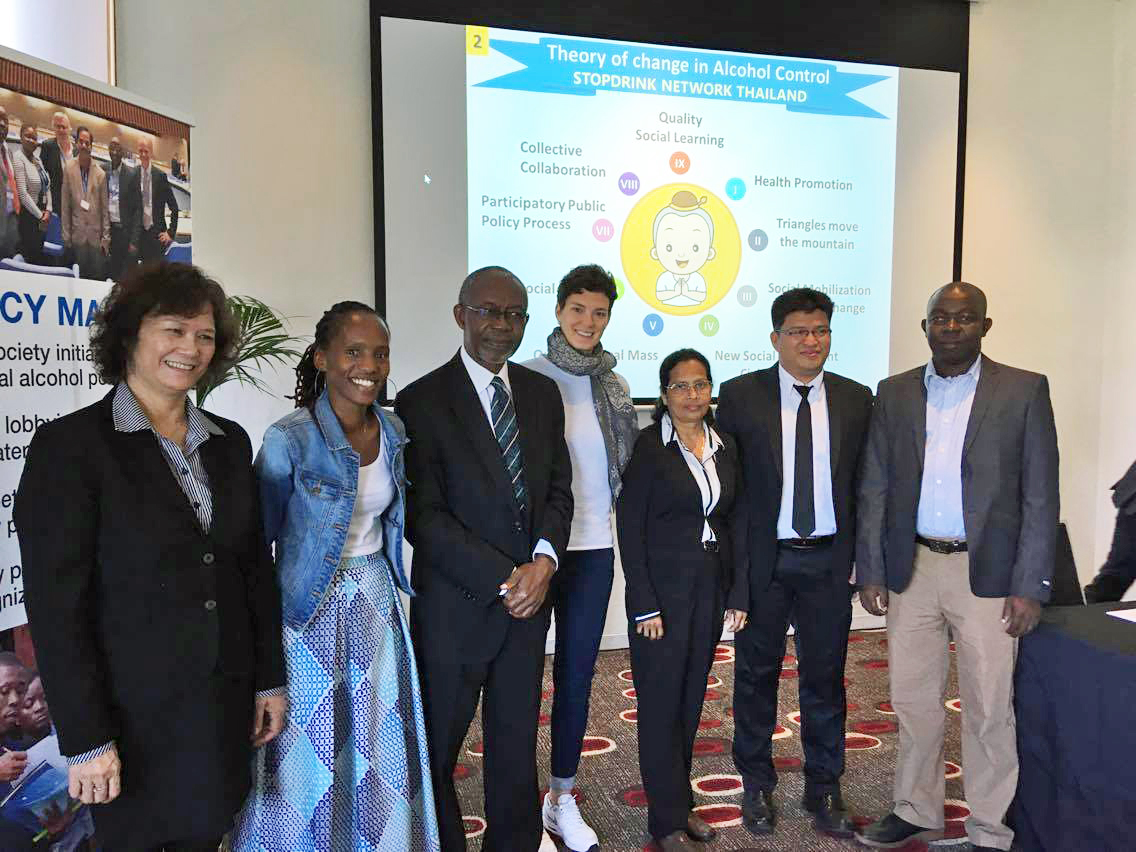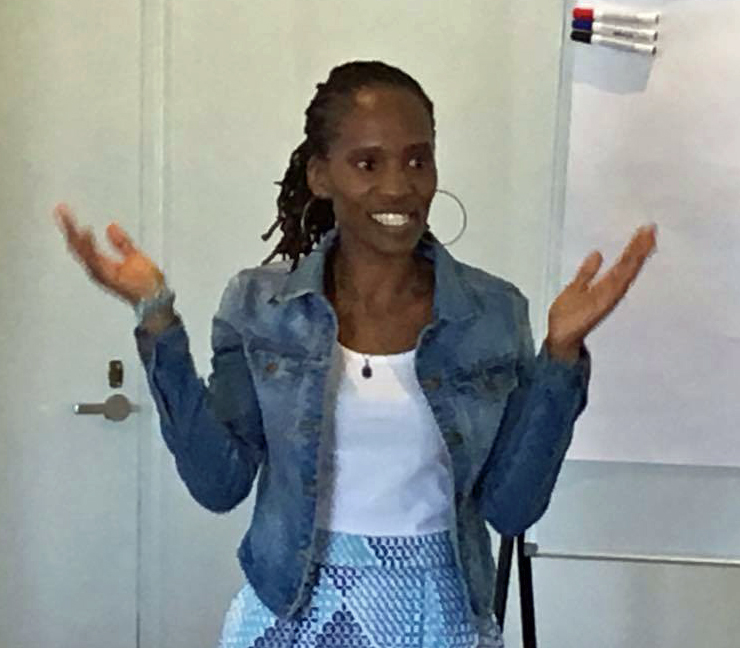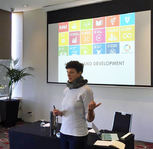International workshop in Melbourne:
Alcohol as an obstacle to development
More than 30 NGO experts from all corners of the world met Tuesday in Melbourne, Australia to discuss alcohol use as an obstacle to development, and in particular how alcohol impedes on the achievement of the Sustainable Development Goals.
This week the Global Alcohol Policy Conference 2017 (GAPC) is taking place in Melbourne, Australia with two local host organisations, the Public Health Association of Australia and the Foundation for Alcohol Research & Education. The conference will be opened today with welcome speeches by the Assistant Minister for Health, The Hon Dr David Gillespie MP and the chair of the Global Alcohol Policy Alliance, Professor Sally Casswell.
In a pre-conference Tuesday, NGO representatives from Asia, Africa, Australia and Europe met to focus on development aspects of the alcohol problem. Developing societies in general still have a low overall alcohol consumption level, but at the same time many of them have risky consumption patterns and experience an increase in drinking as economic development occurs.
The fact that the alcohol industry now targets Africa and Asia as their new and promising markets is another reason for concern for public health advocates like the group of thirty plus NGO experts that met in Melbourne. Many of them pointed to aggressive behavior by both national and multinational alcohol companies, both in terms of commercial marketing and policy advocacy.
 Speakers from Sri Lanka, Vietnam, Thailand, South Africa and Ghana described how alcohol is related to the big development issues in their respective countries, in particular hiv/aids, gender-based violence and poverty. Many of them focused on the gender aspects of alcohol use. Alcohol use, including very risky drinking patterns, is closely linked to the concept of masculinity in many cultures. This brings suffering and reduced quality of life not only to wives and children of heavy drinkers but also to the drinkers themselves, the men.
Speakers from Sri Lanka, Vietnam, Thailand, South Africa and Ghana described how alcohol is related to the big development issues in their respective countries, in particular hiv/aids, gender-based violence and poverty. Many of them focused on the gender aspects of alcohol use. Alcohol use, including very risky drinking patterns, is closely linked to the concept of masculinity in many cultures. This brings suffering and reduced quality of life not only to wives and children of heavy drinkers but also to the drinkers themselves, the men.
Several practical examples were given of how programmes involving men can be used to challenge and change both harmful notions of masculinity and risky drinking cultures. Some of these programmes are designed to involve men exclusively while others uses the whole family as arena for discussions on family roles, gender roles and the whole functioning of a family.
In her presentation the president of IOGT International, Kristina Sperkova, focused on the 17 Sustainable Development Goals (SDGs) and the international processes now going on the implement these goals and to monitor the results globally and nationally. She pointed at 13 of the goals that are influenced by the use of alcohol and challenged the audience to discuss how alcohol advocates from the public health sector can and must contribute to the discourse around the SDGs.
 The speakers together with the chair of the workshop, Professor Isidore Obot, are seen in the picture above. Lebohang Letsela (picture right) from Soul City in South Africa presented the situation in her country with regard to alcohol availability in poor communities, alcohol marketing and the discussion around a ban on alcohol marketing in South Africa.
The speakers together with the chair of the workshop, Professor Isidore Obot, are seen in the picture above. Lebohang Letsela (picture right) from Soul City in South Africa presented the situation in her country with regard to alcohol availability in poor communities, alcohol marketing and the discussion around a ban on alcohol marketing in South Africa.
RELATED ARTICLES
- New report highlights benefits of policy measures to prevent harmful alcohol consumption
- Alcohol use - a barrier to health and to the achievement of the SDGs
- Government investments in alcohol industry up against the wall
- Abstracts for GAPC 2020 – deadline 29 July 2019
- A regional African alcohol coordination mechanism is needed
- New book reveals a series of unethical business practices by Heineken in Africa
- Next GAPC to be held in Dublin in March 2020
- SAFER – a new WHO initiative to boost national alcohol policy processes
- Trouble Brewing
- WHO Launches Global status report on alcohol and health 2018

